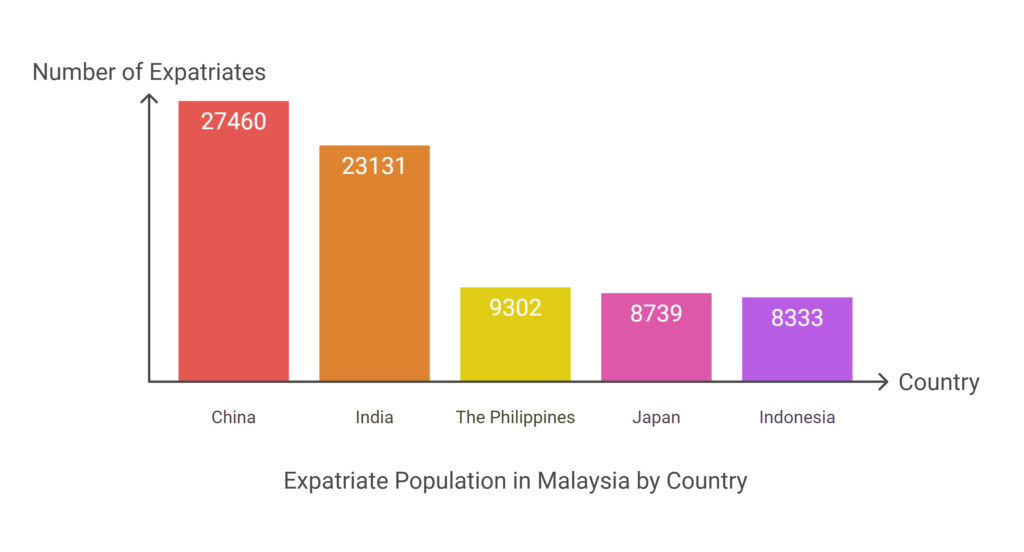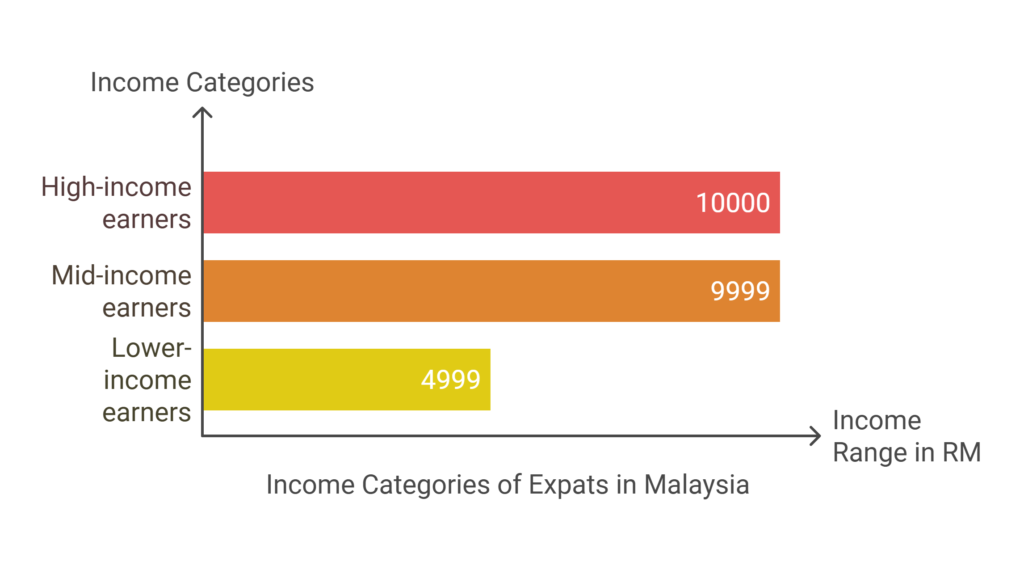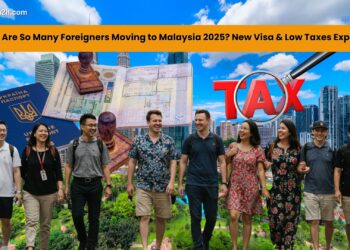Why Expats in Malaysia Contribute More Than Just Financial Growth
Expatriates, or expats, play an indispensable role in Malaysia’s economy, contributing not just financially but also through their expertise, cultural diversity, and global networks. Their impact spans multiple sectors, from tourism and education to investments and household spending. With over 120,000 expats currently living in Malaysia, their presence is a cornerstone of the country’s growth story.
How Expats in Malaysia Contribute to Economic Growth
Expats contribute nearly 5% of Malaysia’s GDP, amounting to RM75 billion annually. This impressive figure highlights their significance as drivers of growth and innovation. In addition to boosting GDP, expats also pay RM100 million in income tax yearly to the Inland Revenue Board (LHDN), reinforcing public finances that fund healthcare, education, and infrastructure.
Expats’ financial impact extends to various sectors. They pay utility bills, invest in local businesses, and spend on household essentials. Many expats enroll their children in international schools, benefiting Malaysia’s education sector, while others enjoy the nation’s cultural richness, driving the tourism industry.
Who Are Expats in Malaysia?
As of October 31, 2023, Malaysia is home to 120,183 expats. While this number represents a small portion of the total labor market, their contributions are highly impactful. Most expats in Malaysia are from five countries:
- China: 27,460 individuals
- India: 23,131 individuals
- The Philippines: 9,302 individuals
- Japan: 8,739 individuals
- Indonesia: 8,333 individuals

These expatriates bring diverse expertise, fostering collaboration and driving innovation across Malaysian industries.
Income Categories of Expats
Expats working in Malaysia fall into three income brackets:
- High-income earners: Those earning RM10,000 and above.
- Mid-income earners: Those earning between RM5,000 and RM9,999.
- Lower-income earners: Those earning between RM3,000 and RM4,999.

These roles, often in high-value sectors, require skills or expertise not readily available in the local labor market. Malaysian employers frequently hire expats for these specialized positions to meet organizational needs.
Expats vs. Foreign Workers
It’s essential to distinguish expats from foreign workers. Expats, also referred to as foreign employees or expatriates in Malaysia, typically hold specialized roles in sectors like technology, finance, and engineering. Meanwhile, foreign workers, employed in the “3D” sectors—dirty, dangerous, and difficult—are crucial for industries such as construction, oil palm, and fishing.
Expats make up just 1% of Malaysia’s workforce of 17.2 million, yet their roles are vital to industries reliant on global expertise. On the other hand, Malaysia has set a ceiling of 2.58 million foreign workers but currently faces a shortfall of 400,000, particularly in labor-intensive sectors.
For instance, the oil palm industry is heavily dependent on foreign labor. A labor shortage could leave fruits unpicked, resulting in losses of RM28 billion annually. This highlights the critical role of both expats and foreign workers in Malaysia’s economy.
Expats’ Broader Impact on Malaysia
Expats living in Malaysia provide significant intangible benefits beyond their economic contributions:
- Global Expertise and Innovation: Expats introduce advanced skills, new technologies, and innovative ideas, strengthening Malaysia’s labor market.
- Cultural Exchange: Expatriates in Malaysia foster a multicultural environment, enriching the country’s social fabric.
- Foreign Investment: Expats often work for multinational corporations, attracting foreign direct investments to Malaysia’s growing economy.
- Tourism and Promotion: Expats share their experiences in Malaysia with friends and family, encouraging others to visit or invest in the country.
Challenges and Policy Considerations
The contributions of expats and foreign workers also present challenges. Policymakers must strike a balance between attracting foreign talent and developing local expertise. Key considerations include:
- Supporting Local Talent: Investing in education and upskilling initiatives can reduce reliance on expatriates over time.
- Encouraging Expats to Stay: Offering attractive incentives, including retirement savings options like EPF contributions and eligibility for permanent residency, can retain global talent.
- Addressing Labor Shortages: Ensuring sufficient numbers of foreign workers in critical sectors is essential to maintaining Malaysia’s economic stability.
The Home Minister, Datuk Seri Saifuddin Nasution Ismail, has stressed the importance of balancing these needs. Abrupt measures, like freezing foreign worker recruitment, could have severe repercussions, especially in sectors like agriculture and construction.
Malaysia’s Competitive Edge for Expats
Malaysia remains a favored destination for expats, thanks to its strategic location, affordable cost of living, and vibrant multicultural society. Cities like Kuala Lumpur and Penang are particularly popular among expats for their infrastructure and lifestyle.
The government also offers programs like the Employment Pass and the Malaysia My Second Home (MM2H) initiative, which simplify visa processes and provide long-term residency options. These measures, combined with the country’s high dividend rate and strong purchasing power, make Malaysia an attractive choice for expatriates and retirees alike.
Conclusion: A Symbiotic Relationship
The relationship between Malaysia and its expatriates is one of mutual benefit. Expats contribute nearly 5% of Malaysia’s GDP, enriching the economy through taxes, innovation, and cultural exchange. Meanwhile, Malaysia provides them with a welcoming environment and diverse opportunities.
As Malaysia looks toward 2025, sustaining this symbiotic relationship will be crucial for economic growth and social development. Whether you’re an expat considering working in Malaysia or someone interested in its dynamic workforce, one thing is clear: expats are an integral part of Malaysia’s story.




